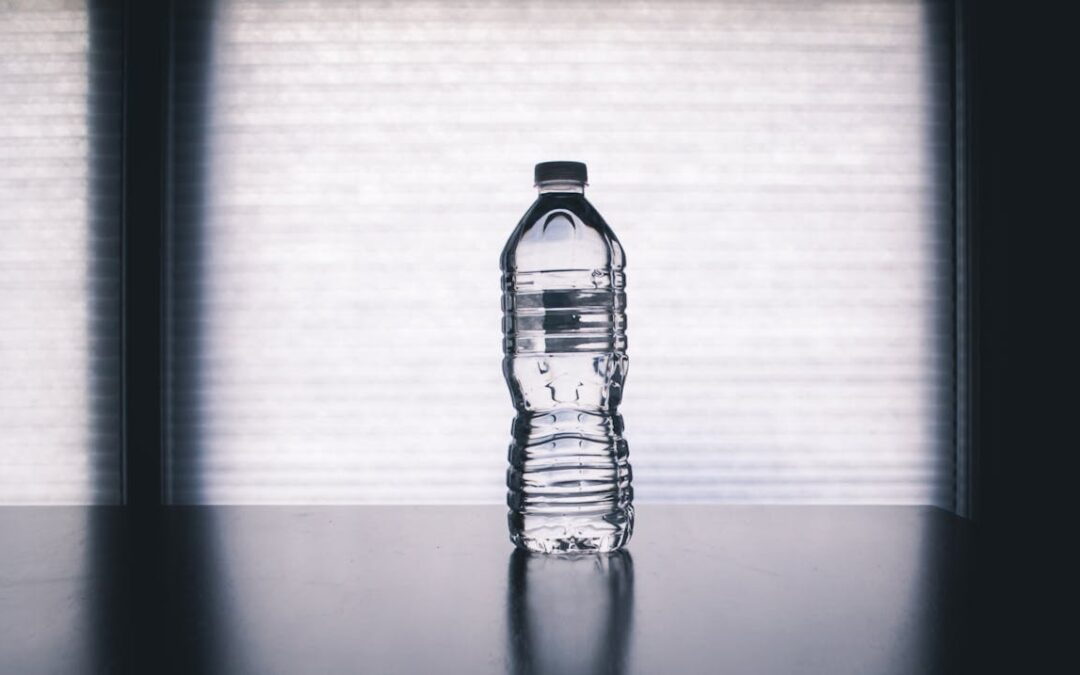Let’s tackle a question that’s probably crossed your mind at some point—is bottled water sterile?
It’s easy to assume that water in a shiny plastic bottle must be pristine, but the truth might surprise you.
Whether you’re buying bottled water for convenience, safety, or taste, it’s important to understand what “sterile” really means and if bottled water meets the mark.
Grab your water bottle, and let’s dive in!
What Does “Sterile” Actually Mean?
Before we get into whether bottled water is sterile, let’s define what sterile means.
In scientific terms, sterile water is completely free of any microorganisms, including bacteria, viruses, and fungi. This type of water is typically used for medical purposes, such as in hospitals or for baby formula preparation.
Most bottled water, on the other hand, is not labeled or marketed as sterile. Instead, it’s treated to meet safety and quality standards for drinking water.
Is Bottled Water Sterile?
Here’s the quick answer: No, bottled water is not sterile—at least, not in the strictest sense of the word.
Bottled water undergoes various treatments to remove contaminants and meet regulatory standards, but it isn’t processed to be completely free of all microorganisms.
Let’s break it down further:
1. Regulations and Standards
In most countries, bottled water is regulated as a food product, which means it must meet certain safety standards. The U.S. Food and Drug Administration (FDA), for example, ensures that bottled water is free of harmful levels of bacteria and other contaminants.
2. Treatment Methods
Bottled water is typically filtered and treated using methods like:
- Reverse Osmosis: Removes impurities, including some microorganisms.
- UV Light Treatment: Kills many bacteria and viruses but doesn’t guarantee sterility.
- Ozonation: Disinfects the water and prevents microbial growth.
While these methods significantly improve water quality, they don’t eliminate all microbes.
3. Storage Conditions Matter
Even if bottled water leaves the factory in near-sterile condition, its sterility can be compromised during storage or transportation. Heat, sunlight, and improper sealing can allow microorganisms to grow, especially if the water is stored for long periods.
What About Bottled Water for Babies?
If you’re a parent wondering, is bottled water sterile for babies?, the answer depends on how you’re using it.
- For Baby Formula: Bottled water should be boiled before mixing with formula to kill any potential microorganisms, even if the bottle claims it’s purified or distilled.
- For Drinking: Bottled water is generally safe for babies to drink as long as it meets safety standards, but it’s not sterile unless explicitly labeled as such.
Can Bacteria Be Found in Bottled Water?
Yes, trace amounts of bacteria can sometimes be found in bottled water, even if it’s been purified.
The key is that these bacteria are usually harmless and pose no health risk to most people. However, in rare cases, bottled water stored in poor conditions can harbor harmful bacteria, especially if the bottle has been opened or exposed to high temperatures.
If you’re immunocompromised or particularly concerned, look for brands that use additional treatment steps like UV sterilization.
Is Bottled Water Sterilised?
No, most bottled water is not sterilised in the same way that medical-grade sterile water is. Bottled water undergoes purification and filtration to make it safe for drinking, but these processes don’t completely eliminate all microorganisms.
If you need sterile water for medical purposes or for preparing baby formula, look for products specifically labeled as “sterile water.”
Is Aquafina Sterile Water?
Aquafina, a popular brand of bottled water, is purified using a multi-step process that includes reverse osmosis, carbon filtration, and UV treatment.
While this makes Aquafina very clean and safe to drink, it is not considered sterile water.
Why Isn’t Bottled Water Sterile?
Sterility isn’t typically a requirement for drinking water because most of the microorganisms found in water are harmless.
Sterile water is a specialized product that requires stringent processes, which are unnecessary for most bottled water consumers.
Additionally, achieving sterility would significantly increase production costs, making bottled water much more expensive than it already is.
Tips for Choosing Safe Bottled Water
If you’re concerned about the safety of your bottled water, here are some tips:
- Check Labels: Look for terms like “purified,” “distilled,” or “reverse osmosis” to ensure the water has undergone treatment.
- Avoid Long Storage: Don’t keep bottled water for extended periods, especially in warm or sunny conditions.
- Use Proper Storage: Store bottles in a cool, dark place to prevent bacterial growth.
- For Babies: Boil bottled water before using it to prepare formula.
FAQs
1. Is bottled water sterile for babies?
No, most bottled water is not sterile. If using bottled water for baby formula, boil it first to ensure it’s safe.
2. Can bacteria be found in bottled water?
Yes, trace amounts of bacteria can sometimes be found in bottled water, but they’re usually harmless and meet safety standards.
3. Is bottled water sterilised?
No, bottled water is not sterilised. It’s purified and treated to make it safe for drinking but isn’t free of all microorganisms.
4. Is Aquafina sterile water?
No, Aquafina is not sterile water. It is purified through a multi-step process but does not meet the strict definition of sterility.
Final Thoughts
So, is bottled water sterile?
Not exactly, but it’s still a safe, convenient option for hydration. While it’s not free of all microorganisms, bottled water undergoes rigorous treatment to meet safety standards.
Just remember, if you need truly sterile water—for medical purposes or for your baby—be sure to look for products labeled as “sterile water.”
Stay informed, stay hydrated, and keep asking the big questions about what’s in your water!

